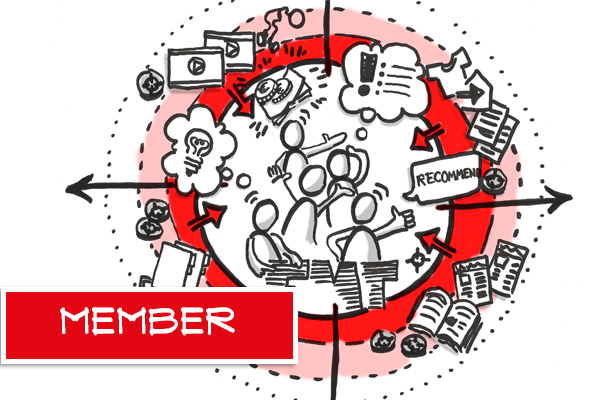Bij internet startups is het niet ongebruikelijk dat ze alle ballen op groei zetten en daarbij (grote) verliezen op de koop toe nemen om wereld overheersing te behalen. In de overtuiging dat er uiteindelijk maar één winnaar overblijft. Uber is daar een voorbeeld van. Spotify ook. Er komt veel geld binnen, maar er gaat nog veel meer geld uit om groei te kunnen bewerkstelligen. Daarnaast zijn er partijen die het zich kunnen veroorloven om geld te verliezen op diensten omdat ze hun inkomsten behalen met aanpalende diensten of producten. Als Apple dankzij zijn streamingdienst meer iPhones verkoopt, is het bedrijf ook tevreden.
Die overheersing van slechts een enkele partij is gevaarlijk natuurlijk. Want zo’n macht kan de spelregels bepalen bij gebrek aan concurrentie. En dat is voor producent en consument slecht.
Daarom is het mooi als er voorbeelden zijn dat het ook anders kan. In de muziek is Bandcamp zo’n voorbeeld. Het is een platform waarop labels en artiesten hun muziek kunnen aanbieden. Om te luisteren, om te downloaden, om te voorkomen, om abonnementen te realiseren, etcetera. En dat doen ze met succes: “We’ll soon mark six straight years as a profitable company that only makes money when artists make a lot more money.”
2017 was another stellar year for Bandcamp, with double digit growth in every aspect of the business. Digital album sales were up 16%, tracks 33%, and merch 36%. Growth in physical sales was led by vinyl (up 54%), CDs (up 18%), and cassettes (up 41%). Revenue from the 3,500 independent labels on Bandcamp grew 73%, and more than 600,000 artists have now sold something through the site. Our publication, Bandcamp Daily, grew its audience by 84%, and all-time payments to artists through Bandcamp reached $270 million.
Bandcamp zet zich af tegen de groten.
The majority of music consumption will eventually take place within the subscription rental services of two or three enormous corporations, who can afford to lose money on music because it attracts customers to the parts of their businesses that are profitable.
Allowing the distribution of an entire art form to be controlled by so few has troubling implications. The streaming giants exert tremendous influence over what music gets heard, and must primarily serve their most important supplier, the major labels. The result is that independent labels, and especially independent artists, are far less likely to be discovered on those platforms.
Over het bovenstaande valt veel te zeggen. Ik denk dat Spotify wel degelijk een grote rol ook speelt bij het ontdekken van nieuw talent en ook onafhankelijk talent.
Maar waar ik het natuurlijk mee eens ben is dat het belangrijk is dat er alternatieven bestaan. Steun dus platforms die een alternatief bieden. En steun de artiesten direct waar mogelijk.
We want a music platform to exist where the playing field is level, where artists are compensated fairly and transparently, and where fans can both stream and own their music collections.
Erwin Blom
|
|
|








